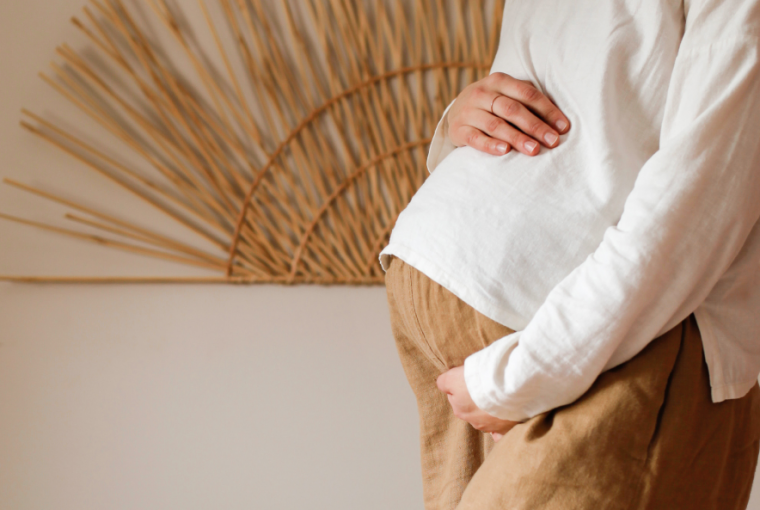Although women are the majority of the global population, “women’s health” is still treated as a specialty. Shockingly, even with common events like pregnancy, there is a lack of standards around what to expect for certain elements of your health like “when can you tell if you’re pregnant” or “what should your heart and temperature be doing day by day.” These insights have never been fully detailed across a wide, diverse population.
For that reason, we are excited to announce Oura’s partnership with researchers at the University of California San Diego in the hopes that the Oura Community can help create the first comprehensive and continuous maps of the physiological patterns of pregnancy.
Many members of the Oura Community have already reached out to us to share their pregnancy stories or ask questions about what to expect on their journey.
The goal of this research is to find answers and make them publicly available, together. In doing so, UC San Diego and Oura hope to generate useful information for clinicians and individuals alike, while revealing the power of participants to drive research in underserved areas. All findings will be made public, regardless of whether or not you have access to an Oura Ring.
—
More specifically, UC San Diego is inviting Oura Ring users with a history of pregnancy (and their partners) to contribute their historical Oura data and personal observations to research. UC San Diego will then compile the data from those who opt-in to construct models of what patterns appear “normal” for pregnancy vs. what might change ahead of common complications.
The more we learn about expected pregnancy patterns, the sooner individuals may be able to seek medical care, have peace of mind, or make more informed decisions about their day-to-day behaviors based on these findings.
UC San Diego is a public research university; all insights and findings will be made publicly available, shared as talks, papers, and educational content.
What Patterns are They Searching For?
Pregnancy is often exciting, but can also be a stressful or even devastating time. UC San Diego is looking for patterns in heart rate, heart rate variability, temperature, respiratory rate, and sleep that may help identify the onset of pregnancy and/or help predict different pregnancy outcomes and progressions—including healthy births, preterm births, and miscarriages.
UC San Diego hopes to leverage Oura data across the entire pregnancy journey to demonstrate how continuous data and individualized baselines could enable early-warning systems or help identify key differences across populations that might support individuals and their doctors in making more personalized care decisions.
“We don’t yet know what physiological patterns are ‘standard’ across pregnancies and what reflects the highly individual nature of each experience. That’s what we hope to discover. But Oura users have already reached out to share their stories, unearthing some common patterns and leaving us confident that together, we could quickly make discoveries with a much broader reach than any lab study in a lab could achieve.” – Principle Investigator, UC San Diego Assistant Professor Benjamin Smarr
This research is the first step towards finding answers.
What does the study involve?
If you agree to take part in this study, you will be asked to:
- Complete a brief, one-time online survey about the timing and outcome of your/your partner’s pregnancy/pregnancies while wearing an Oura Ring. Partners are encouraged to join the study so that researchers can explore the impacts on patterns in both parents.
- Allow UC San Diego to access your previously recorded Oura data (activity, temperature, heart rate, heart rate variability, respiration rate, and sleep). They will de-identify/anonymize and protect all shared data. All analyses will not be tied to personally-identifying information.
Questions? Email be-pregnancy@eng.ucsd.edu
Why Oura?
Oura delivers research quality data in a consumer device with the rare ability to provide high-frequency, continuous temperature data —putting users in a unique position to help researchers characterize many key signals of the pregnancy journey.
Why participate?
This study offers the opportunity for the Oura Community to advance women’s health research, together. Our first goal is advancing research rather than product development.
We hope to support participant-driven science where findings are publicly available and help generate momentum in the field.
All findings will be shared in peer-reviewed publications for the public good. The results are owned by UC San Diego, and are not held by Oura. Participants can choose to withdraw their participation and data sharing at any time.
Every contribution counts.
In the meantime, many members of the Oura Community have written to us, and one another, to share their pregnancy experiences and discoveries.
You can share your own story or learn from our community as we work to publish their stories alongside research efforts:

Oura Ring products and services are not medical devices, and are not intended to mitigate, prevent, treat, cure or diagnose any disease or condition. If you have any concerns about your health, please consult your doctor.




